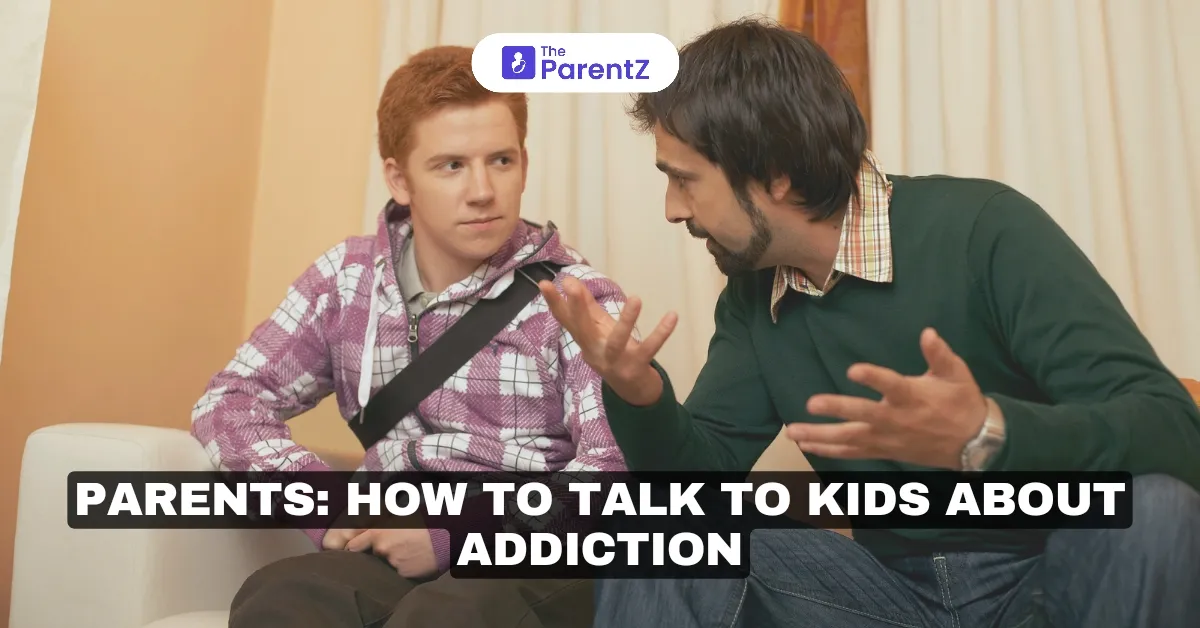Did you know that in the U.S. about 2.3 million adolescents aged 12-17 have been reported using drugs in 2020? This is why there’s an urgent need to have a serious conversation about addiction with your kids. But the main question is—how do you talk about such a heavy topic without feeling like a lecture or scaring your child? Read this article to explore how you can talk to your kids about addiction.
The Importance of Conversation in Combating Substance Abuse in Teens
Substance abuse among young people is often an outcome of combined reasons, including peer pressure, curiosity, and emotional struggles. According to the National Institute on Drug Abuse, almost 46 percent of teens will have tried an illegal drug by the time they graduate high school. Despite these staggering figures, open communication with your teen can significantly help reduce the risk of substance abuse in them.
However, timing is everything when touching sensitive topics. Therefore, the best way is to avoid bringing it up during moments of stress or distraction. Rather, look for natural moments such as while driving, during a family walk, or when a similar topic comes up in a movie or news story. This helps your children feel safe and reduces the pressure of formal sit-down talks.
Start The Conversation Early
It's never too late to start a healthy conversation about something that matters. Here’s the right approach to do so.
5-8 years of age
For young kids, the best way is to explain how some substances, like medicine, help when used correctly but can harm if misused.
9-12 years of age
For tweens, you can consider using examples from media or school discussions to talk about addiction in an understandable way.
13+ years of age
For teens, you can be direct about the risks of substance abuse, informing them about both long-term and short-term consequences, including health issues, legal trouble, and relationship strain.
Be Relatable and Honest
Kids too know the importance of honesty therefore, avoid sugarcoating or oversimplifying the realities of addiction. Instead, focus on sharing real-life examples or stories about someone in your family who has been affected by addiction in an age-friendly way. For example, you can say, ‘Your uncle struggled with drinking, which made things hard for him. He’s working on getting better, and we support him.’ This way you are actually creating a safe space for your kids to express their feelings.
Focus On The Science Behind It
Addiction shouldn't be explained as a moral failing but more as a health issue. You can let your kids know how substances like drugs and alcohol affect the brain, leading to changes in behaviour and other psychological concerns. Let them know how drugs actually trick people’s brains into thinking they need more, which in turn makes it harder to stop once someone starts.
Ask Questions, But Listen Too
This conversation shouldn't be a one-way thing. Instead, allow two-way communication. Give them opportunities to ask as many questions as they want to understand the ill effects of drugs. You can too ask questions including ‘What do you know about drugs or alcohol?’,’How would you handle it if a friend offered you something unsafe?’. You will eventually notice your child opening up when they feel they are not being judged.
Mark The Boundaries
Lastly, it is important to set some firm rules about substance abuse while also letting them know the consequences of breaking them. Even studies have proven that teens whose parents set rigid rules are less exposed to the risk of indulging in such behaviors. Don't forget that it's important to encourage these rules with some love. As simple a statement as this: ‘I want you to stay safe and healthy, which is why I expect you to avoid drugs and alcohol. If you ever feel pressured, you can always come to me’ can be the real game changer—literally!
Takeaway
While talking to kids about addiction can seem overwhelming, it's one of those conversations that really plays a big role in helping your kids avoid getting into the trap of drugs. By encouraging open discussions with honesty, you can help your child make the right decisions.








Be the first one to comment on this story.